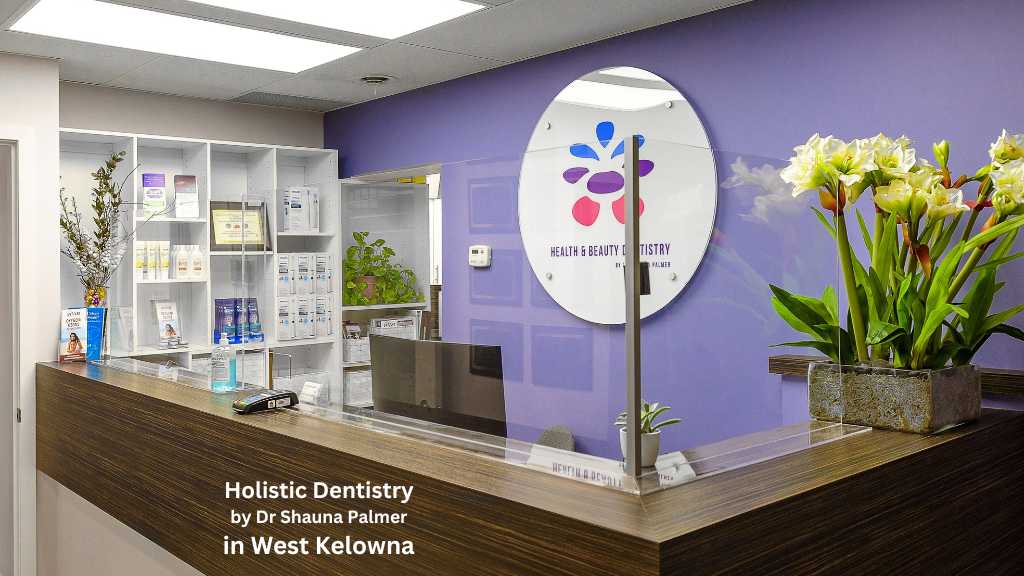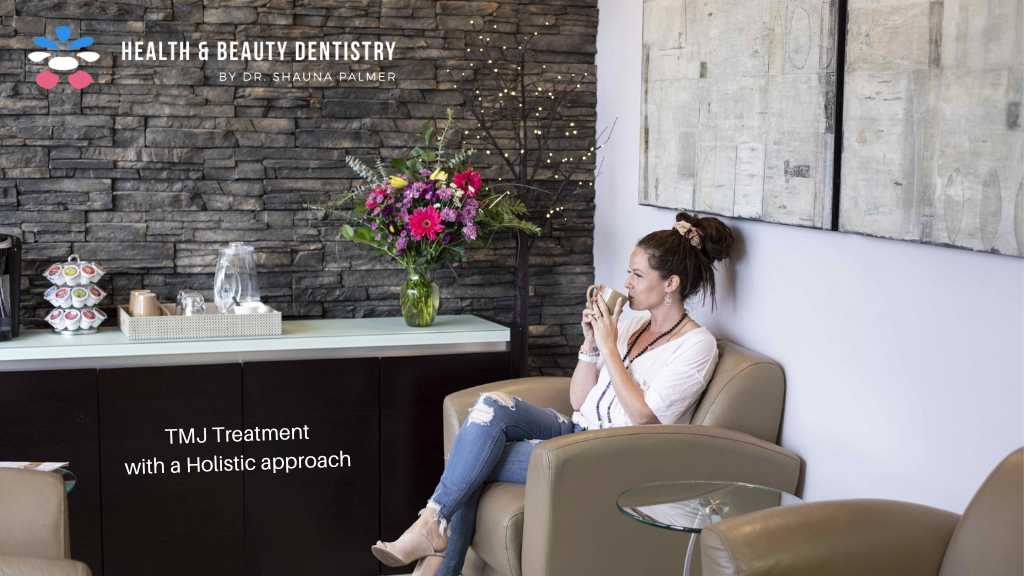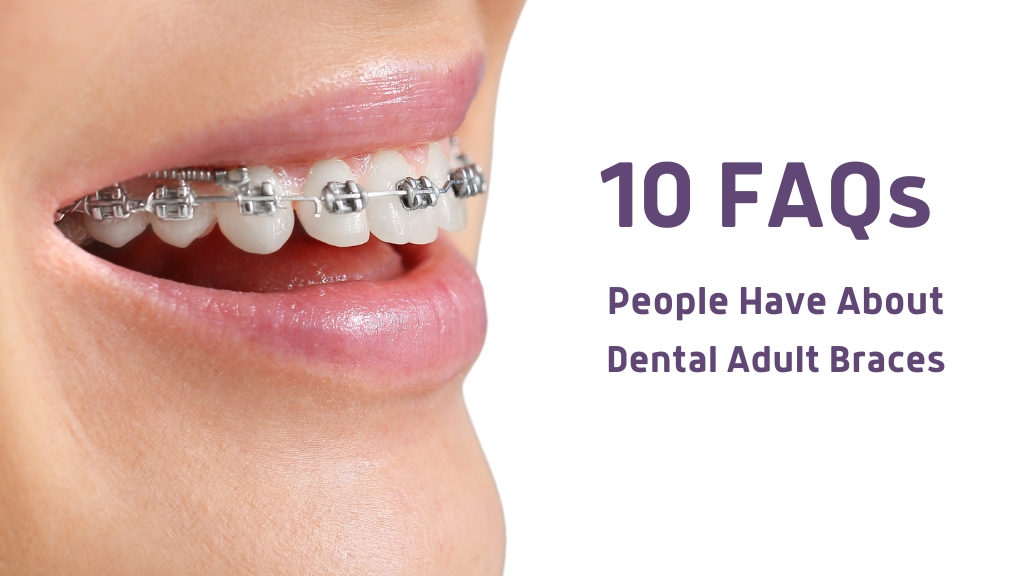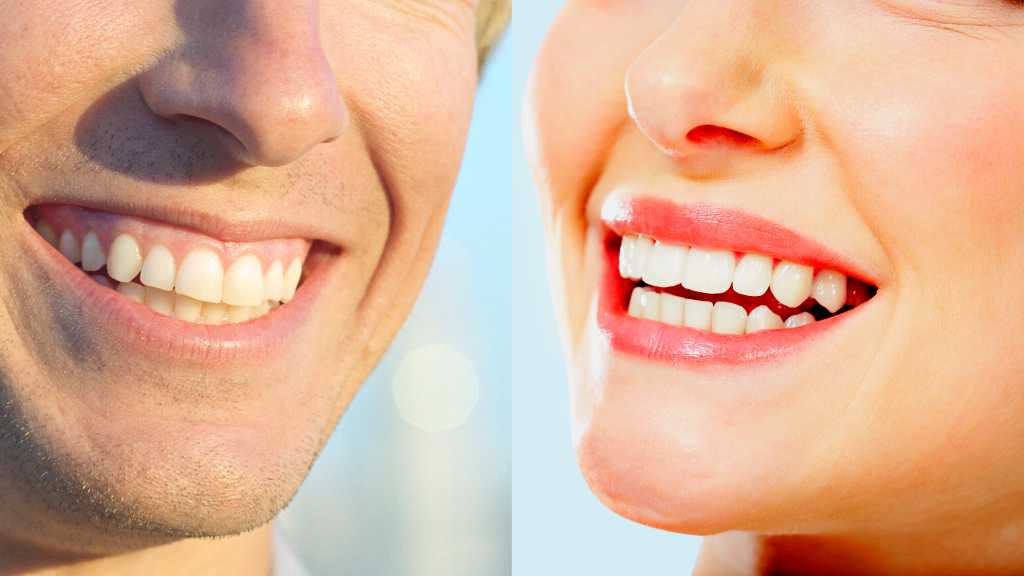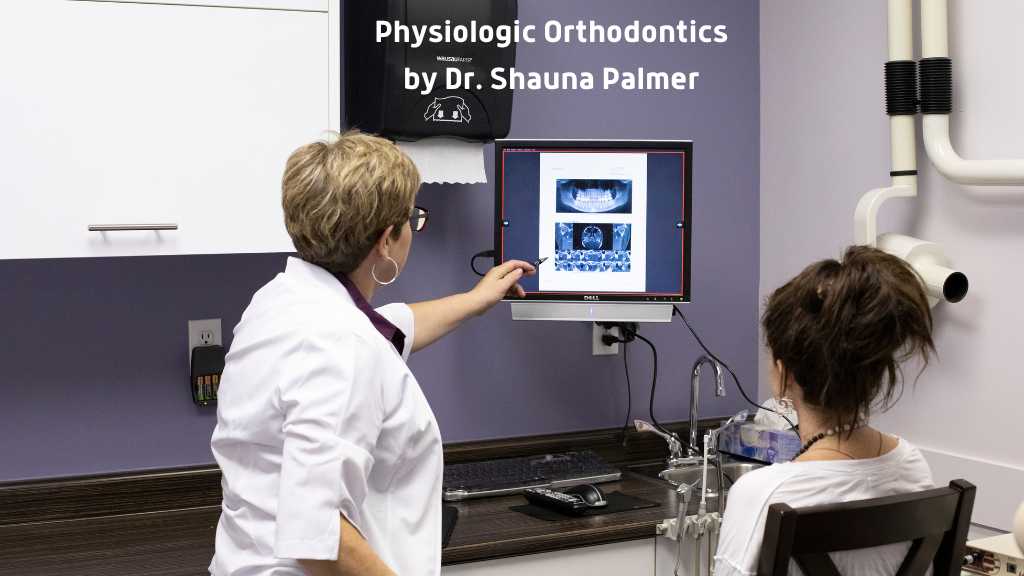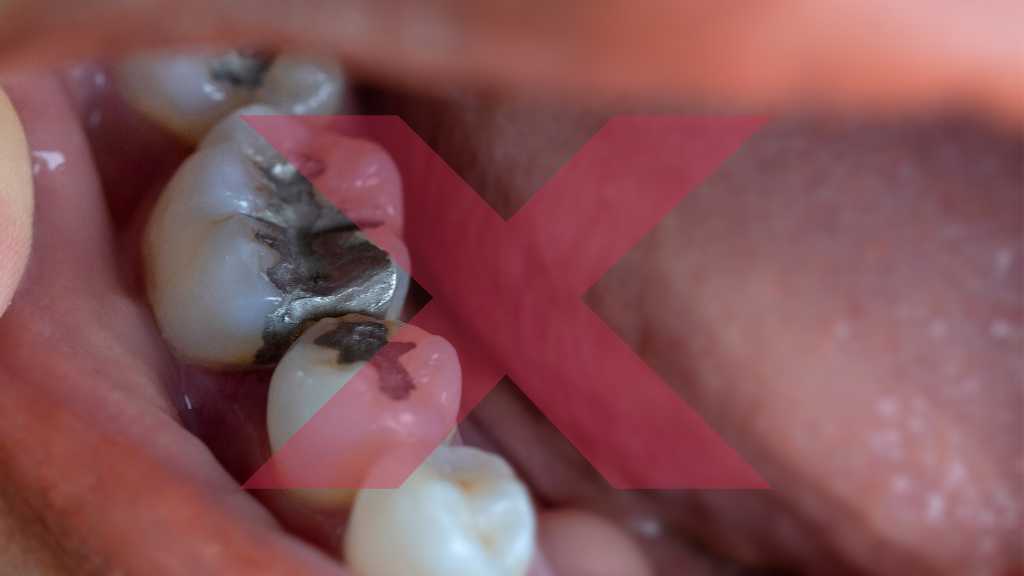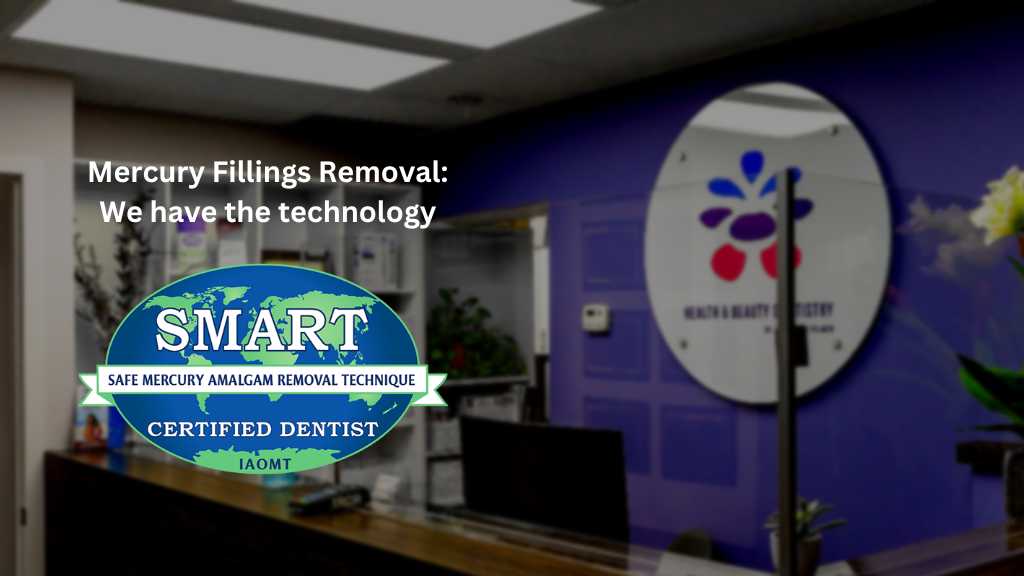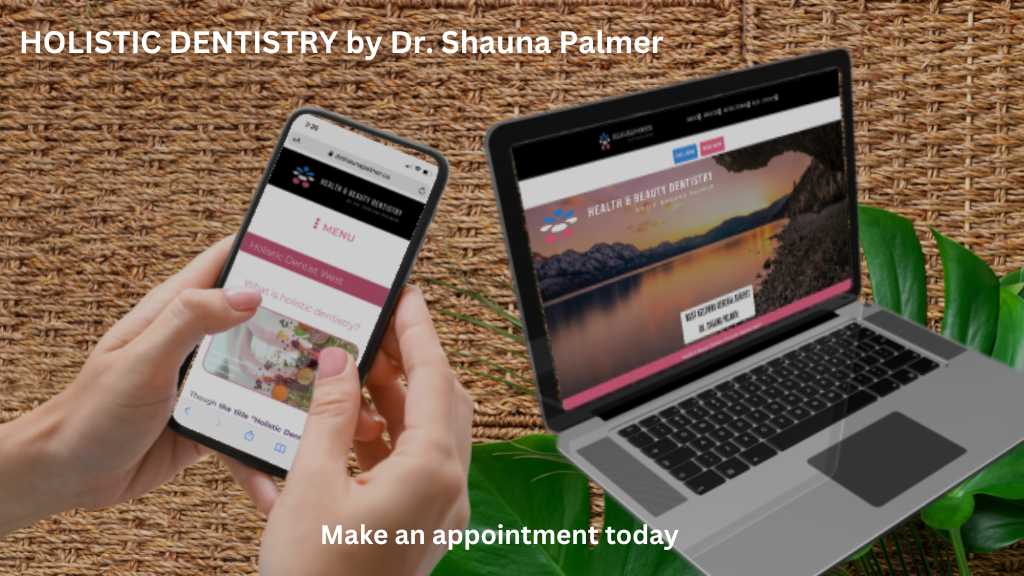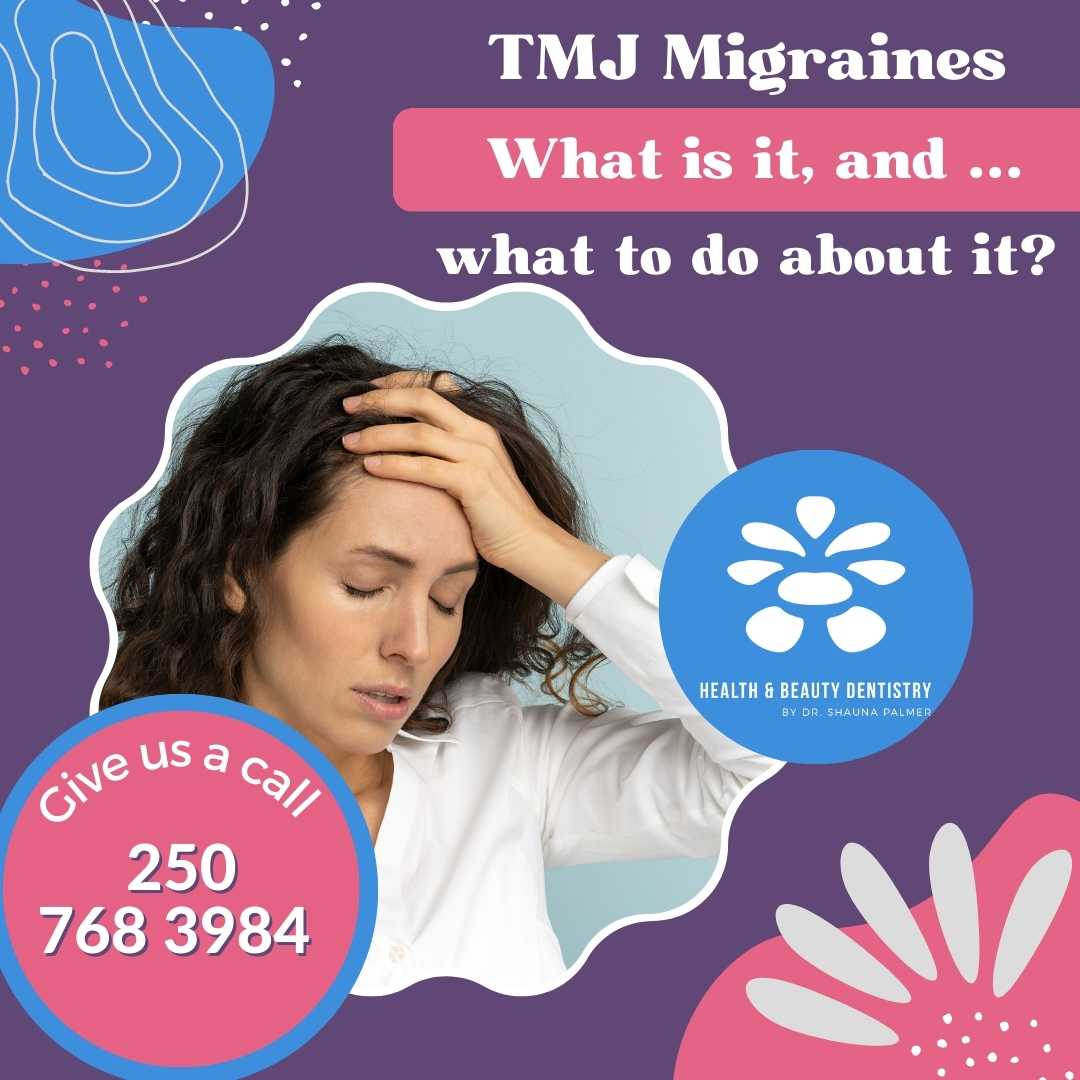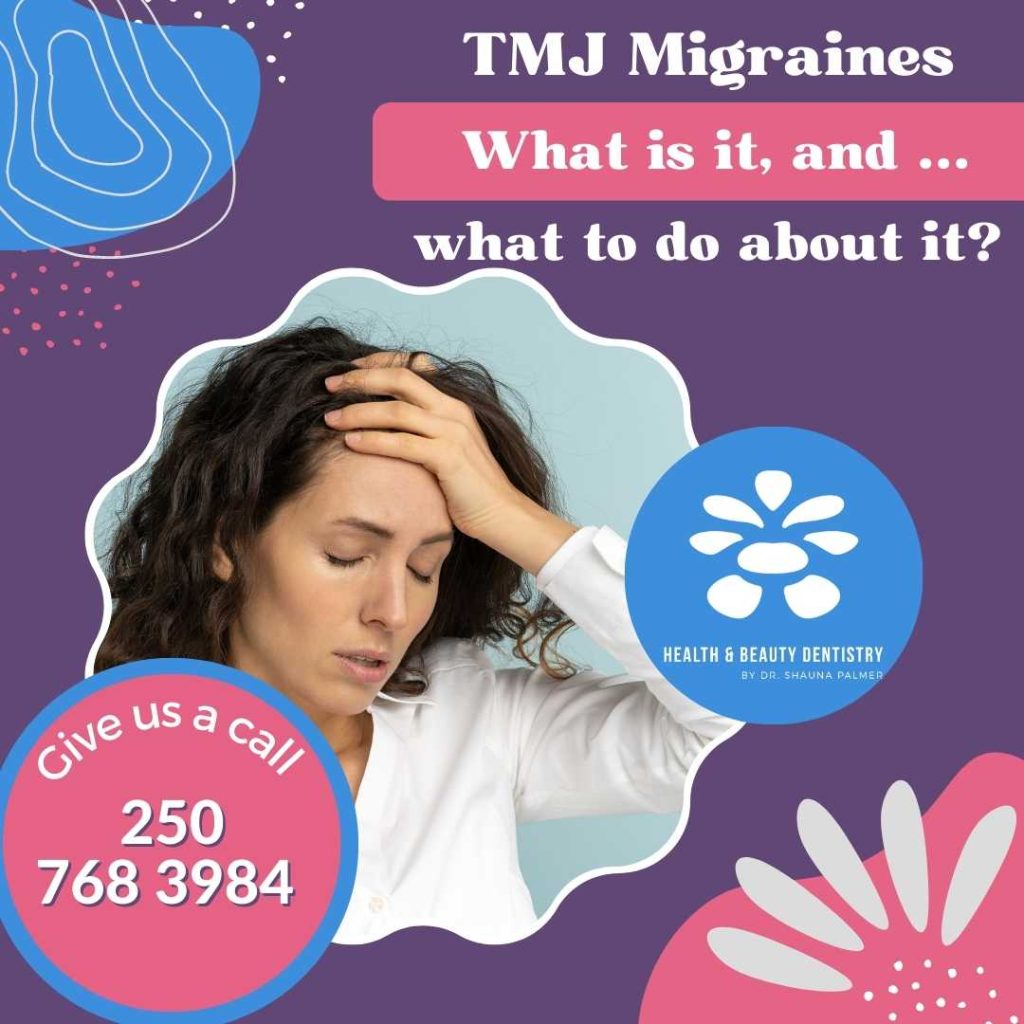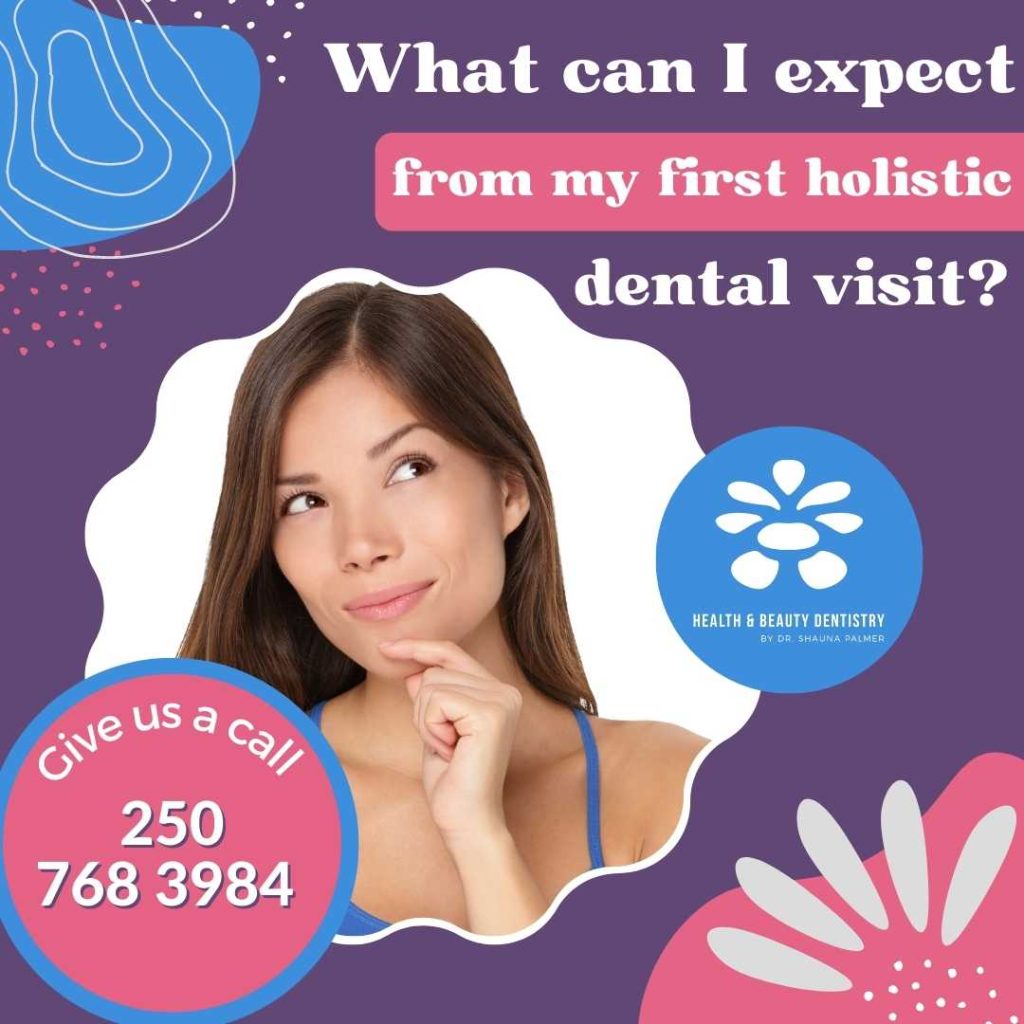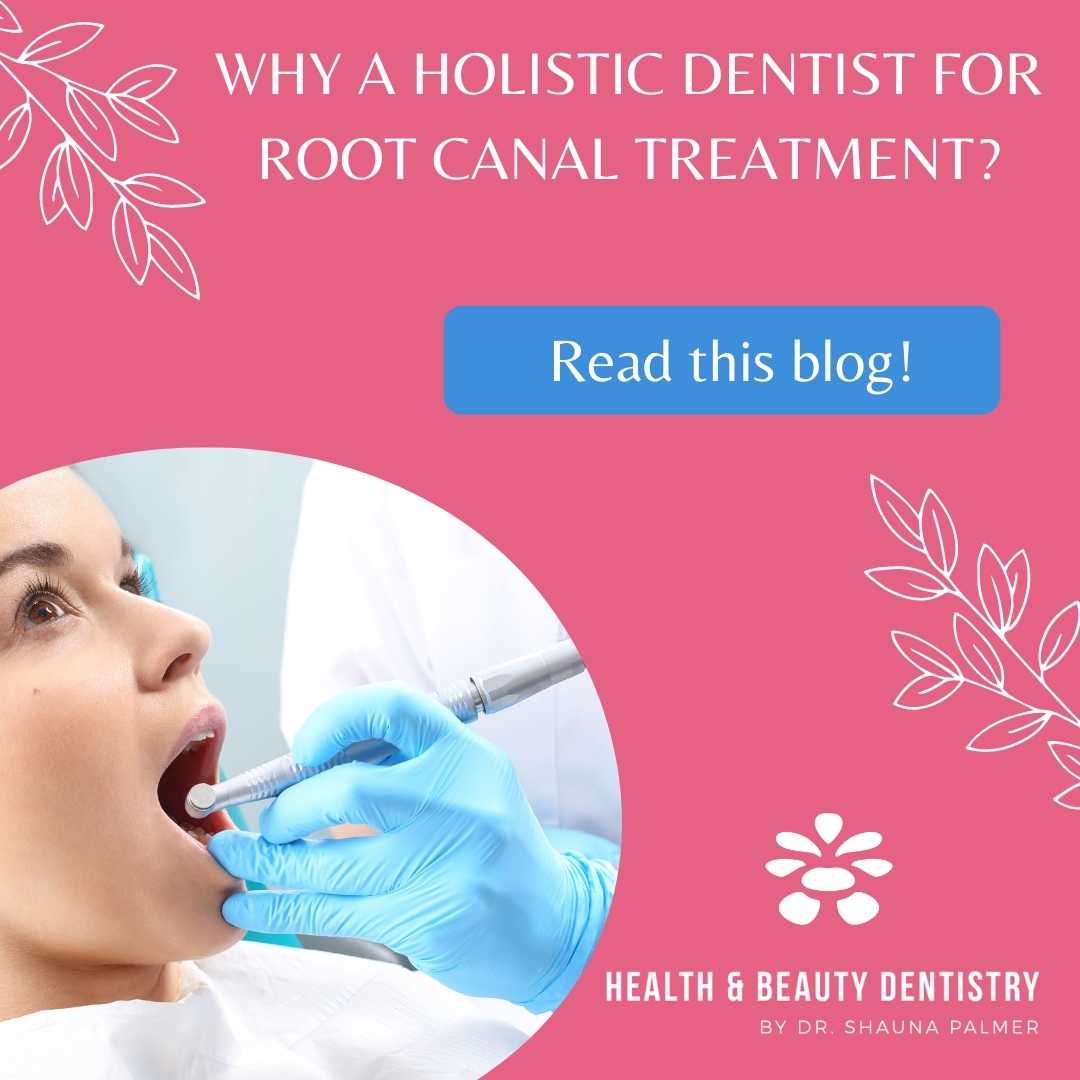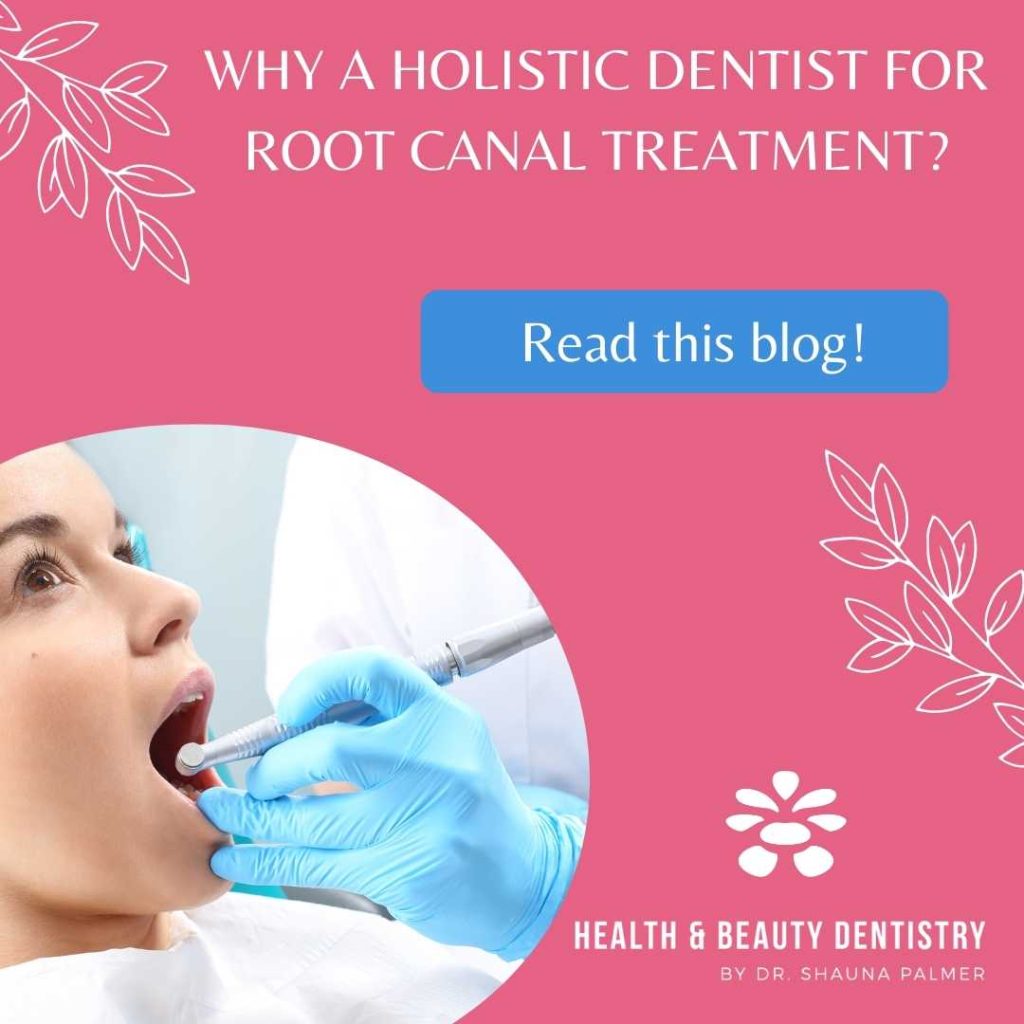What is a TMJ Disorder exactly?
Dr. Shauna Palmer, General Dentist and TMJ Disorder Practitioner at Health & Beauty Dentistry in West-Kelowna:
“Temporomandibular Joint Disorder (TMJ) is a condition that affects the jaw joint and surrounding muscles, causing various uncomfortable symptoms. Among these symptoms, TMJ ear pain can have a significant (negative) impact on an individual’s physical well-being, emotional state and overall quality of life. The Temporomandibular joint connects the jawbone to the skull. It is a complex joint responsible for facilitating jaw movement, such as chewing, speaking, and yawning. When the TMJ becomes dysfunctional or misaligned, it can lead to a range of symptoms, including ear pain.
The role of dentists in treating TMJ disorder is ever-evolving. By now it’s clear that only an experienced TMJ practitioner can help alleviate TMJ-related discomfort. At Health & Beauty Dentistry, we have developed a comprehensive, holistic TMJ Treatment methodology that aims to get rid of the underlying cause(s), instead of just trying to address the symptoms. In this blog post, we will explore the nature of TMJ, while emphasizing the compassionate understanding of the challenges faced by those with TMJ ear pain.”
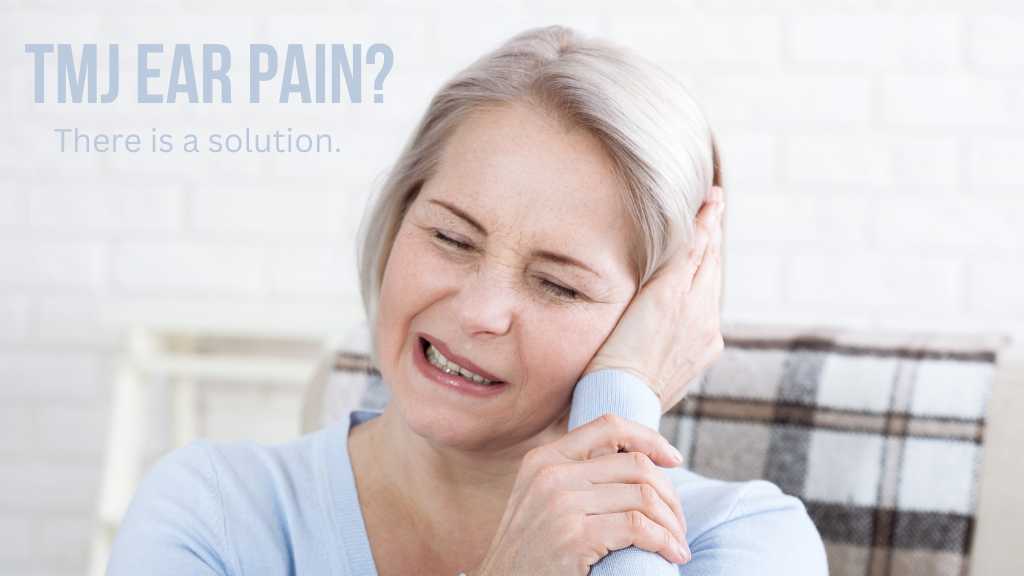
TMJ ear pain can have a negative impact on your entire life.
Living with TMJ ear pain is a distressing experience that can significantly impact an individual’s overall well-being. The constant discomfort and pain can disrupt daily activities, making simple tasks like eating or speaking painful and challenging. Moreover, the emotional toll of enduring persistent ear pain can lead to frustration, anxiety, and a reduced quality of life. At Health & Beauty Dentistry in West-Kelowna, we understand that it’s crucial to approach this condition with compassion, while focusing on the physical and emotional burden it places on those affected.
What are the common symptoms of TMJ ear pain?
TMJ ear pain is often accompanied by a variety of symptoms, which can differ in intensity from person to person.
Common signs of TMJ ear pain include:
a) Earache: TMJ can cause persistent ear pain or sharp, intermittent pain that may worsen with jaw movement.
b) Jaw pain and stiffness: Discomfort in the jaw joint, along with stiffness and limited range of motion, is a common symptom of TMJ.
c) Headaches and facial pain: TMJ can trigger tension headaches, migraines, or localized facial pain, commonly felt around the temples, cheeks, or jaw area.
d) Clicking or popping sounds: Some individuals with TMJ may experience clicking, popping, or grating sounds when they open or close their mouths, sometimes accompanied by jaw joint locking.
e) Tinnitus: TMJ-related ear pain can lead to tinnitus, characterized by a ringing, buzzing, or humming sensation in the ears.
f) Dizziness and vertigo: In certain cases, TMJ ear pain can cause dizziness or a spinning sensation (vertigo).
g) Toothache and tooth sensitivity: TMJ-related pain can be mistaken for toothache, and individuals may experience tooth sensitivity even without dental issues.
h) Neck and shoulder pain: TMJ can cause referred pain, leading to discomfort in the neck and shoulders.
Can a dentist help to treat TMJ disorder?
Yes, dentists with an extensive experience with TMJ treatment can play a crucial role in diagnosing and treating TMJ disorders. Kelowna TMJ Dentist Dr. Shauna Palmer has a deep understanding of the intricate structure of the jaw joint and the complexities of TMJ-related symptoms. Her experience with TMJ disorders, symptoms, comprehensive evaluations, including a physical examination and imaging tests, has helped many people get rid of their TMJ pain. As a TMJ Doctor / Specialist she can provide appropriate treatment options tailored to the individual’s needs. Note: Dental colleges in Canada do not provide any official certifications for treating TMJ disorders.
How to treat TMJ ear pain?
Treating TMJ ear pain often involves a multidisciplinary approach. Dentists may recommend a combination of therapies, including:
a) Lifestyle modifications: Dentists may advise patients to practice stress management techniques, and make dietary adjustments to reduce TMJ-related discomfort.
b) Oral appliances: Custom-fitted oral appliances, such as physiologic day and night-time appliances, can help alleviate TMJ symptoms by reducing jaw joint stress and repositioning the jaw.
c) Adjunctive Therapies: Dentists may collaborate with physical therapists, chiropractors, massage therapists, osteopathic therapists, or other health practitioners to help alleviate some of the symptoms.
d) Medications: In some cases, dentists may prescribe medications such as nonsteroidal anti-inflammatory drugs (NSAIDs) or muscle relaxants to manage pain and inflammation. Dr. Palmer often uses ozone injections (drug free), ultrasound treatment, special exercises, red and infrared therapy to help with symptom management rather than relying on pharmaceuticals.
e) More invasive procedures: For severe cases of TMJ disorder that do not respond to conservative treatments, dentists MAY recommend more invasive procedures, such open-joint surgery. However, these options are usually considered as a last resort.
Who provides TMJ Ear Pain Treatment in Kelowna?
Dr. Shauna Palmer, at Health & Beauty Dentistry in West-Kelowna provides TMJ Disorder Treatment. Dr. Palmer is a highly experienced general dentist and TMJ Treatment Practitioner, who offers compassionate care and effective treatment options for TMJ ear pain. With her expertise and personalized approach, Dr. Palmer has helped numerous individuals find relief from TMJ-related symptoms. At her TMJ Dentistry Clinic in West-Kelowna, you can expect a warm and supportive environment where your concerns are heard and addressed. By scheduling an appointment with Dr. Palmer, you can expect a significant step forward towards managing your TMJ ear pain and improving your overall well-being.
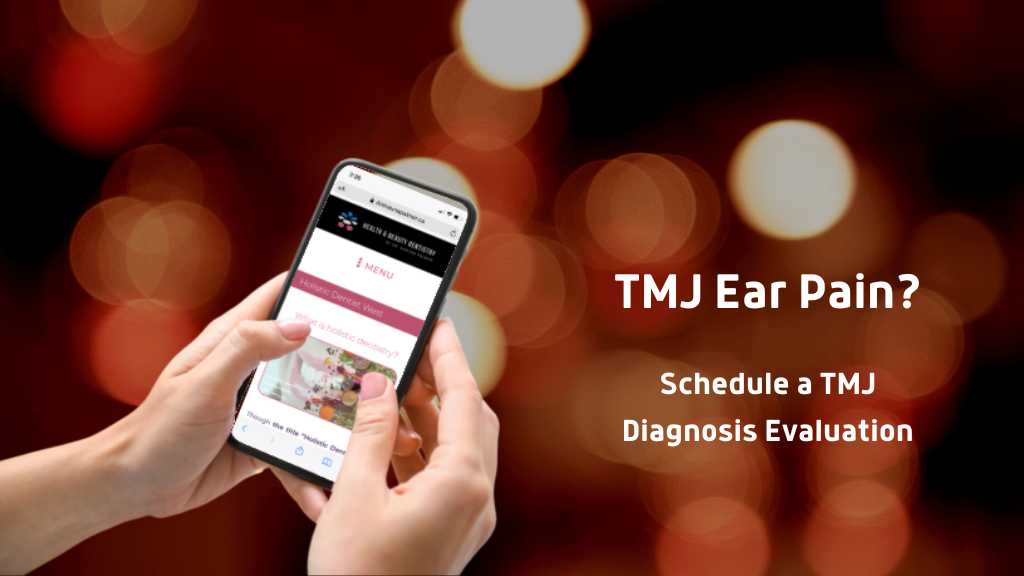
Dr. Shauna Palmer, General Dentist and TMJ Disorder Practitioner at Health & Beauty Dentistry in West-Kelowna:
“TMJ ear pain can significantly impact an individual’s life, causing physical discomfort and emotional distress. By understanding the nature of TMJ, recognizing common symptoms, and seeking appropriate treatment, individuals can find relief and regain their quality of life. We offer a holistic approach for TMJ disorders, providing comprehensive treatment options tailored to each patient’s unique needs. Are you suffering from TMJ Ear Pain right now? Take the first step towards relieving TMJ ear pain to restore comfort and well-being.”
Schedule an appointment today!

